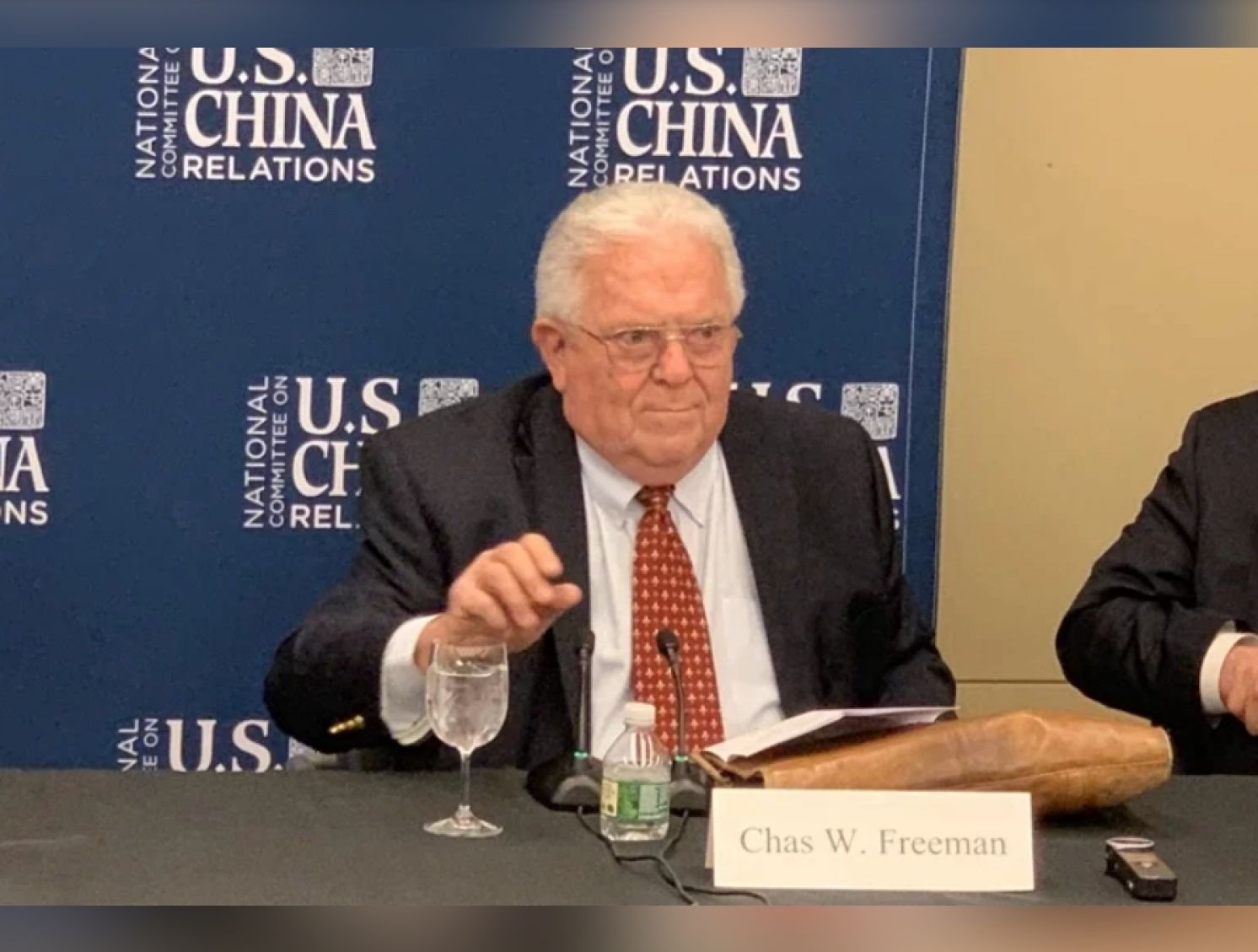
Former U.S. Official Identifies Most Precarious Three Months in the Taiwan Strait
By Kuo Chung-lun
United Daily News, June 25, 2022
In October 1995, the People’s Liberation Army (PLA) announced it would conduct missile exercises in the Taiwan Strait. Former U.S. Assistant Secretary of Defense Chas Freeman, who happened to be visiting Beijing then, warned the People’s Liberation Army (PLA) that the United States would react to the exercise. In response, Xiong Guangkai, deputy chief of staff of the PLA, expressed Beijing did not believe that the United States would dare to attack mainland China "because [they] value Los Angeles more than Taipei." This statement was seen as intimidation to the United States — if the United States defends Taiwan, California may face the threat of a nuclear attack.
While mainland China had intercontinental ballistic missile (ICBM) capabilities in the 1980s, their intent of threat was not aimed at the United States but rather the Soviet Union. Moreover, it was not until the early 1990s that it developed the ability to attack the United States. In truth, the issues and disputes present in U.S.-China relations are not so great to the extent that renders the use of nuclear weapons necessary, with the Taiwan dilemma being the only exception. In short, Freeman asserted that China is willing to engage in warfare with the United States over Taiwan.
Twenty-seven (27) years later, the power gap between the United States and China is narrowing, and mainland China is going past mere intimidation towards the United States, and the American president has begun to state the United States will militarily intervene in the Taiwan Strait issue with clarity. In these times, Freeman is being vocal about his assessment of the time in which mainland China will attack Taiwan in his interviews with mainland Chinese English media agencies.
Admiral Philip Davidson, former Commander of the U.S. Indo-Pacific Command (USINDOPACOM), believes that Communist China will invade Taiwan by force in 2027. On the other hand, Freeman, who is familiar with the history of Communist China, knows that 2027 is the 100th anniversary of the founding of the PLA, but he does not think this is a possible timeframe. Instead, he deems the period from when the U.S. presidential election takes place in November 2024 to the inauguration of the president in January 2025 as the most perilous three months for the security of the Taiwan Strait.
According to Freeman, four decades ago, the United States devised a diplomatic framework that allowed Beijing to not see Taiwan as an urgent issue that needed to be resolved by force. However, that framework has now collapsed, and instead, provided China with a motive to move forward with the task as soon as possible. Currently, all that is left is military deterrence to prevent a Taiwan Strait war. According to Freeman, if in 2024, the U.S. election brings to power right-wing Americans with a commitment to Taiwan independence, such as what Pompeo articulated, this would directly challenge Beijing which would require military response as described by its anti-secession law.
If the transfer of power in the United States is too chaotic, or if an incident like that of last January where attempts to challenge election results that leads to a riot reoccurs, then this will bring about a period where countries that want to challenge the American power are tempted to act on their intentions.
For Beijing, if it concludes that it cannot cooperate with the new U.S. administration, and the latter shows its will to fight China until the end on the Taiwan issue, then Beijing will deem it better to fight sooner than later. Beijing has no reason to take an incremental approach since then the United States will have enough time to think about various solutions and intervene. If mainland China does act, Freeman says “it will be sudden, it will be with maximum force, it will be with great speed, it will involve the decapitation of the leadership in Taipei and the destruction of Taiwan infrastructure simultaneously.”
Freeman is not belligerent, nor is he pro-China and anti-Taiwan. On the contrary, he once stated that Taiwan is the most enviable society on Chinese soil, but he is against going to war with Beijing over Taiwan—one that can escalate to the level of nuclear war. According to Freeman, his heart is with Taiwan perhaps but not his head. He believes that any war in the Taiwan Strait will lead to the destruction of Taiwan's democracy and prosperity.
He admitted that he is now a "minority" among China experts, and the administration of President Joe Biden will not listen to his advice. He criticized that the ongoing diplomacy between the United States and China is one of mutual humiliation. He is especially dissatisfied with the statements of the former U.S. Secretary of State Pompeo and Spokesman Zhao Lijian of China’s Ministry of Foreign Affairs, as this harms the image of their countries and raises tensions among themselves.
Even though his warning is worth paying attention, Freeman only talked about the role the that United States plays in the progression of this issue. To make a more well-rounded assessment, the internal changes within Taiwan and the Chinese mainland by 2024 should be considered as well.